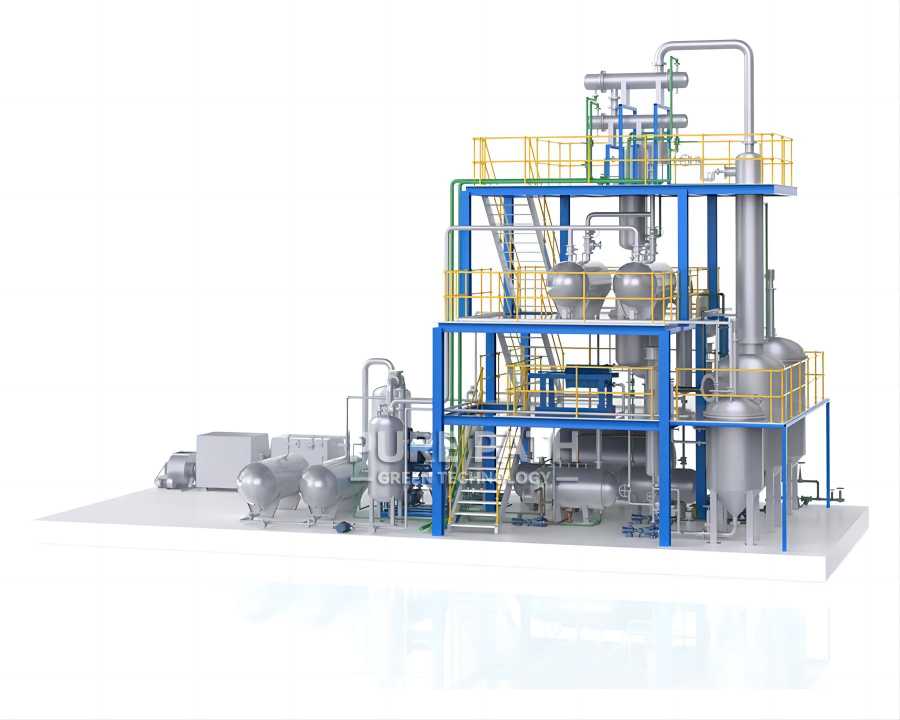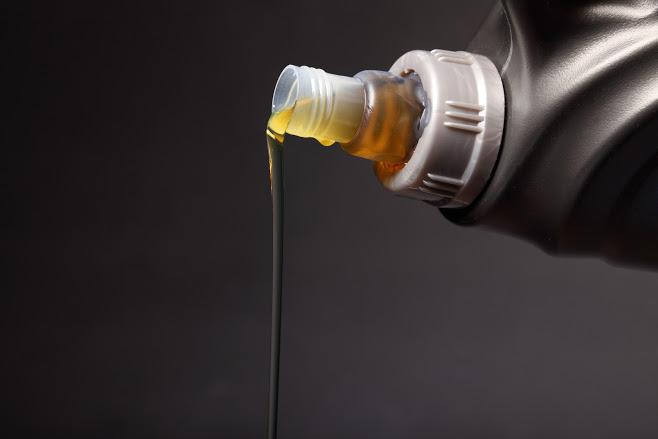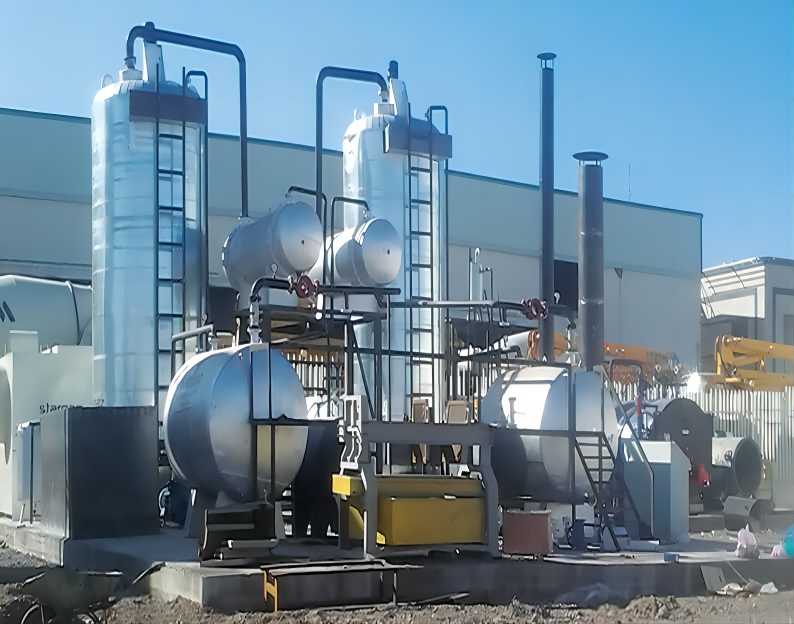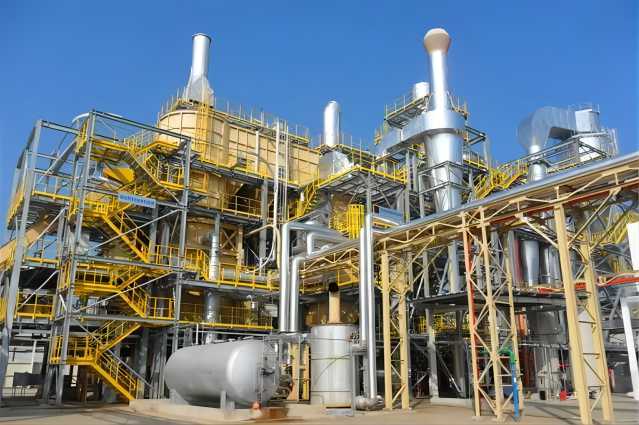Re-Refining Used Oil into Motor Oil: A Sustainable Choice for a Cleaner Future
Used motor oil is a common byproduct of our dependence on vehicles. While it may seem insignificant, improper disposal of used oil can have serious environmental consequences. Fortunately, a process called re-refining offers a sustainable solution by transforming used oil into high-quality motor oil. This article explores the used oil re-refining process, the performance of re-refined oil, and the role this technology plays in a more sustainable future.

The Importance of Used Oil Recycling
Used motor oil contains harmful contaminants like heavy metals and hydrocarbons. If improperly disposed of, it can seep into the soil and groundwater, polluting water sources and harming wildlife. Discarded oil can also end up being burned as fuel, releasing harmful pollutants into the air.
Re-refining used oil offers a significant environmental benefit. It reduces the reliance on virgin crude oil, a non-renewable resource, for the production of new motor oil. This translates to a lower carbon footprint, as extracting and refining crude oil is an energy-intensive process. Studies suggest that re-refining used oil can conserve up to 80% of the energy required to produce virgin base oil. Additionally, it reduces the amount of used oil requiring disposal, minimizing the risk of environmental contamination.
What is Used Oil Re-Refining?
Used oil re-refining is a multi-stage process that cleans and purifies used motor oil, transforming it back into a high-quality lubricant. Let’s delve deeper into the steps involved in this process:
1. Collection and Transportation: The first step involves collecting used oil from various sources, including automotive service centers, quick-change oil businesses, and do-it-yourself oil changers. Responsible waste management companies or dedicated used oil collection centers handle this task. The collected oil is then transported to re-refining facilities in specialized containers that prevent leaks and spills.
2. Initial Processing and Quality Checks: Once at the re-refinery, the used oil undergoes initial processing to remove large contaminants like dirt, metal shavings, and water. Following this initial cleaning, the oil is rigorously tested to determine its composition and suitability for re-refining. This testing ensures that the oil can be effectively processed and that the final product meets quality standards.
3. Key Stages of Re-Refining:
- Dehydration: This stage removes water from the used oil. Water contamination can compromise the lubricating properties of the oil and accelerate wear and tear on engines. Dehydration is typically achieved through heating the oil and separating the water vapor using techniques like distillation.
- Light End Removal: Used oil contains lighter hydrocarbon molecules with lower boiling points. These components are not desirable in finished motor oil and can contribute to oil volatility. Processes like vacuum distillation are employed to remove these lighter fractions, which can be used for other industrial applications.
- Fuel Oil Stripping: Certain additives and contaminants can remain in the used oil after dehydration and light end removal. Fuel oil stripping utilizes specific solvents to remove these unwanted elements, further purifying the oil.
- Vacuum Distillation: This crucial stage separates the base oil from the remaining contaminants and heavy hydrocarbons in the used oil. Vacuum distillation operates under reduced pressure, allowing the oil to be heated to its boiling point without significant decomposition. This process separates the desired base oil fractions from heavier components like asphalt, which can be used for industrial applications like paving.
- Hydro-Treating: The final stage involves treating the base oil with hydrogen gas under high pressure and temperature in the presence of a catalyst. This process removes any remaining impurities, including sulfur and oxygen compounds, further enhancing the quality and performance of the re-refined oil.
4. Byproducts of Re-Refining: The re-refining process generates several byproducts. Lighter hydrocarbon fractions removed during light end removal can be used in various industrial applications. Heavy oil residue separated through vacuum distillation can be utilized for fuel blending or industrial processes like asphalt production.

Re-Refined Motor Oil: Performance and Applications
Re-refined motor oil, once it undergoes a rigorous refining process, can achieve performance characteristics that are on par with those of virgin base oil. Subject to meticulous testing, the re-refined oil is guaranteed to meet the stringent standards set by the American Petroleum Institute (API) for motor oil, ensuring its suitability for a wide range of engine applications. Tailored with specific additive packages, the re-refined oil can be formulated to meet the exacting requirements of different engine types and operational conditions.
Due to its exceptional performance and eco-friendliness, re-refined motor oil is widely used in various automotive and industrial settings. Its use spans from passenger cars and commercial trucks to buses and even some types of industrial machinery and power generation systems. The adoption of re-refined motor oil contributes not only to the longevity of the equipment but also to cost savings in maintenance and a reduced impact on the environment.
Benefits of Using Re-Refined Oil
The use of re-refined motor oil offers several advantages:
- Environmental Benefits: As mentioned earlier, re-refining reduces reliance on virgin crude oil, leading to a lower carbon footprint and decreased energy consumption. Additionally, it minimizes the risk of environmental contamination by diverting used oil from improper disposal practices.
- Economic Benefits: Re-refining used oil offers a cost-effective alternative to virgin base oil production. This translates to potentially lower prices for consumers when choosing re-refined motor oil. Additionally, a robust re-refining industry can create jobs and stimulate economic activity in the recycling and manufacturing sectors.
- Performance: Modern re-refining processes yield high-quality base oil that can be formulated into motor oil meeting the stringent performance standards set by industry bodies like the American Petroleum Institute (API). Re-refined oil can effectively lubricate and protect modern engines, ensuring optimal performance and fuel efficiency.

The Re-Refining Industry: Challenges and Opportunities
Despite its environmental and economic benefits, the re-refining industry faces some challenges:
- Collection Infrastructure: A well-established infrastructure is crucial for collecting used oil efficiently. This includes convenient collection points, collection programs at service stations, and public education initiatives to encourage responsible disposal of used oil.
- Public Awareness: Many consumers remain unaware of re-refined oil as a viable alternative to virgin oil. Raising public awareness through educational campaigns and promoting the performance and environmental benefits of re-refined oil can help overcome this hurdle.
- Competition: The re-refining industry competes with the established market for virgin base oil. Promoting policies that incentivize the use of re-refined oil and support the development of re-refining technologies can create a more level playing field.
The Future of Used Oil Re-Refining
As environmental concerns and the need for sustainable practices gain increasing attention, used oil re-refining is poised for significant growth. Technological advancements can further enhance the efficiency and cost-effectiveness of the re-refining process. Additionally, collaborations between the re-refining industry, policymakers, and automotive manufacturers can create a robust system for used oil collection, processing, and utilization.
Here are some additional points to consider for the future:
- Investment in Research and Development: Continued research and development efforts can lead to even more efficient re-refining processes, potentially leading to a higher yield of high-quality base oil from used oil.
- Standardization and Regulations: Establishing clear standards and regulations for re-refined oil can further enhance consumer confidence and ensure product quality.
- Collaboration with the Automotive Industry: Collaboration between the re-refining industry and automotive manufacturers can promote the use of re-refined oil as a factory-fill option for new vehicles.
By addressing the existing challenges and embracing these future opportunities, used oil re-refining can play a key role in creating a more sustainable future for the automotive industry and contribute to a cleaner environment for generations to come.

Conclusion
Re-refining used oil offers a compelling solution for managing a potentially hazardous waste stream while conserving precious resources. The resulting re-refined motor oil can effectively lubricate modern engines, delivering performance comparable to virgin oil. By promoting public awareness, establishing a robust collection infrastructure, and fostering collaboration across various sectors, used oil re-refining can become a cornerstone of a sustainable transportation future. Choosing re-refined oil is a simple yet impactful way for consumers to contribute to a cleaner environment and a more circular economy.







